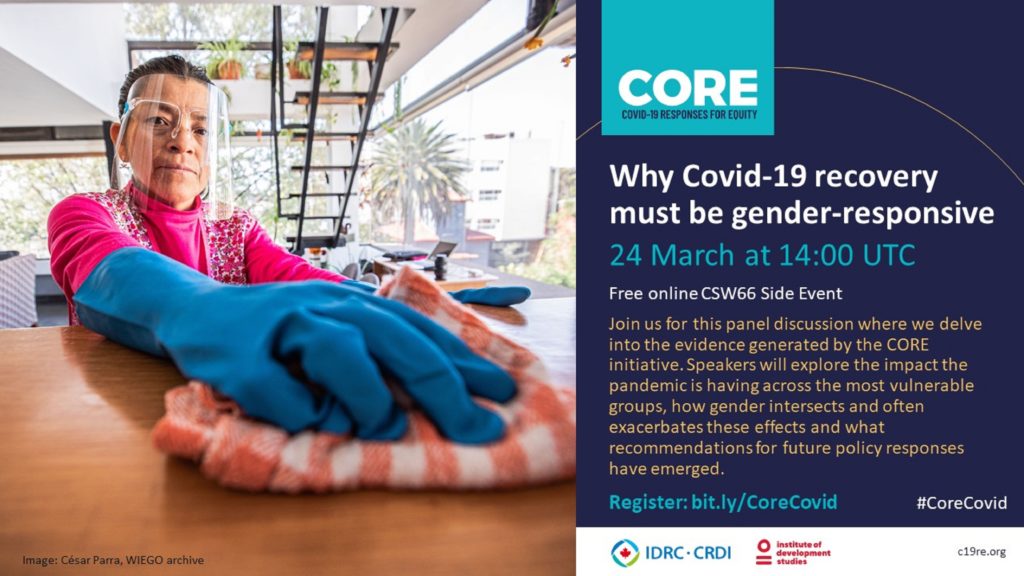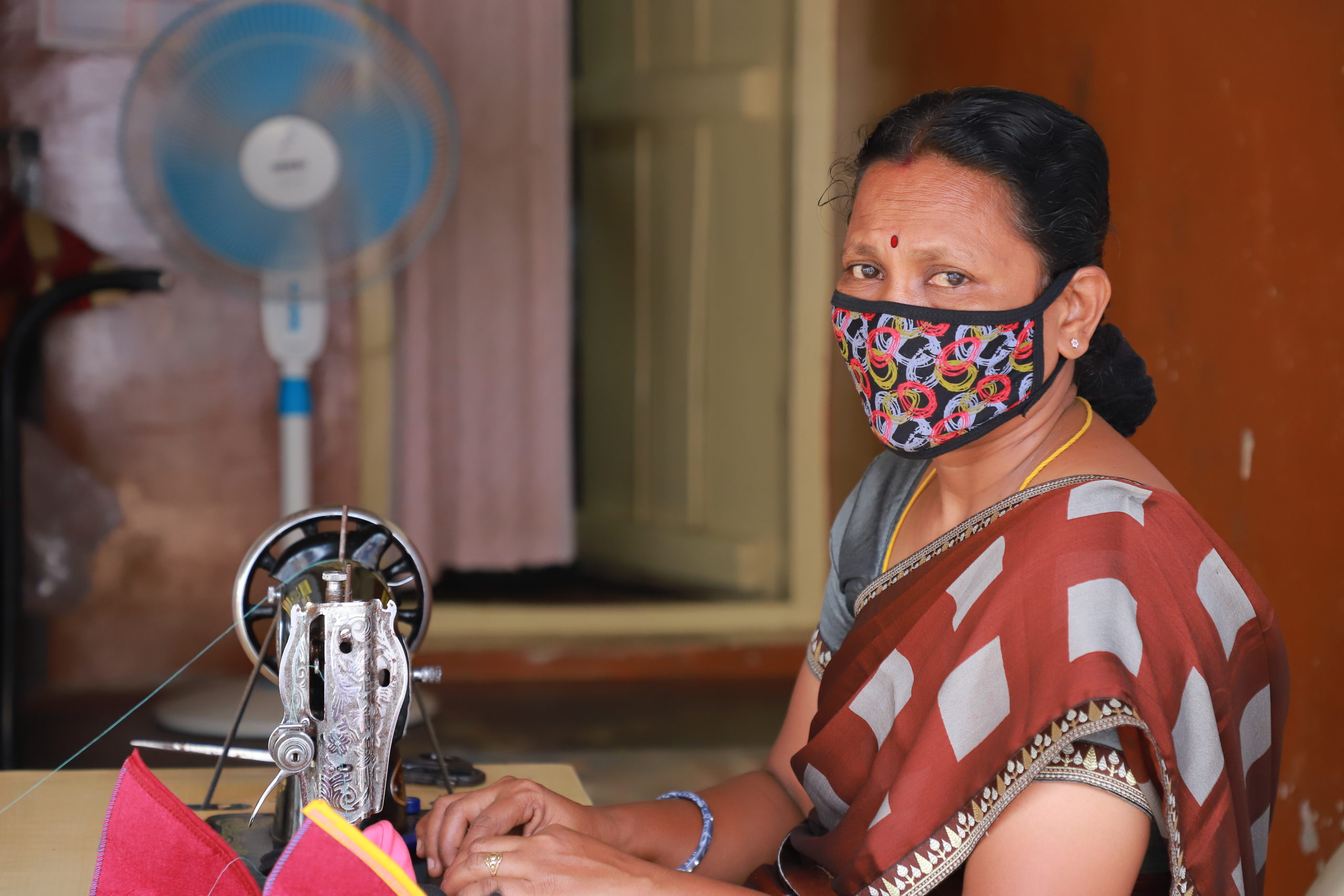The Coronavirus pandemic is having a major impact on livelihoods across the globe, with women and minority communities working in informal economies often the hardest hit. This is the focus of our latest Research for Policy and Practice Report on ‘Why Covid-19 Responses must be gender responsive’, and a corresponding online event, part of the sixty-sixth session of the Commission of the Status of Women.
The gendered impacts of Covid-19
The Covid-19 crisis is different from previous crises. It has hit women and gender minority communities hardest. Globally, women lost 46 million jobs in 2020, whereas men lost 57 million. However, in percentage terms, jobs losses were larger for women, at 3.6 per cent compared to 2.9 per cent for men. Employment has recovered for both women and men during 2021, but at a slower speed for women.
The latest projection by the International Labour Organization (ILO) indicates that neither women nor men have recovered to their 2019 employment levels. Total jobs for women were approximately 19 million fewer in 2021 than in 2019, while this figure was 10.2 million for men. And losses in employment have resulted in economic inactivity (the withdrawal from the labour market) much more than in unemployment, particularly for young women. There are fundamentally three reasons behind these gender-differentiated impacts.
Women working in impacted sectors
First, women’s employment dominates in the sectors most severely impacted by the crisis, from domestic workers to wholesale and retail commerce, accommodation and food services and some labour-intensive segments of manufacture, like garments.
A new study by Women in Informal Employment: Globalizing and Organizing (WIEGO) found that in an analysis of domestic workers, home-based workers, waste pickers and street vendors across 12 cities, home-based workers, predominantly women, were the hardest hit of the four sectors. By mid-2021, they had barely recovered two per cent of pre-pandemic median earnings. Broken local and global supply chains as a result of the pandemic impacted negatively on the demand for the goods and services they produced, limiting their ability to secure livelihoods.
Women in informal employment
Second, beyond the sector they work in, women are over-represented in informal or casual employment, making them cheaper and easier to lay off or at risk of losing their livelihoods. Informality has also left women out of the radar of labour market policies, as they are ineligible for unemployment insurance benefits or job preservation subsidies.
In India, where the informal economy is large, the economic losses due to Covid-19 have made these workers more vulnerable. The impact has been particularly devastating for women, who make up more than two-thirds of the urban female workforce. Existing research suggests that such economic shocks have profound implications for women not only in domains of income and employment but also ownership and control over assets, unpaid work, decision-making, and access to various resources required for well-being (food security and shelter) and autonomy.
Women and unpaid labour
Third, measures like the closure of schools or restrictions to mobility exacerbate care demands within households. Throughout the Covid-19 pandemic, these have mostly been taken up by women, forcing some to extend their paid and unpaid hours to unsustainable levels, cut down on paid working hours or leave employment altogether.
Research from WIEGO also showed the differential impacts of this increase in unpaid care work across genders. 35 per cent of women reported an increase in unpaid care work, compared with only 22 per cent of men. This came as the result of childcare centre and school closures, preventing them from working or forcing them to reduce their working hours. Women who reported increased unpaid care work struggled more to work the same number of days and hours as before the pandemic in comparison to other workers.
Why Covid-19 recovery must be gender responsive
The issues discussed above feature in a new Research for Policy and Practice Report and are supported by the Covid-19 Responses for Equity (CORE) initiative of International Development Research Centre (IDRC) and IDS. It provides solid evidence about the gendered impacts of Covid-19 and the ways ahead. The paper by WIEGO provides evidence about informal women workers, be they domestic workers, home-based workers, waste pickers or street vendors, indicating that recovery from the deleterious economic shock is far from complete.
Another research project REBUILD, from International Centre for Research on Women (ICRW) Asia, gives insights to the experiences of domestic workers and street vendors in New Delhi. And an African School of Economics (ASE) study focuses on the effect of Covid-19 containment policies in Benin, Burkina Faso and South Africa, revealing significant differences between the three countries, in particular on their effects on gender-based violence.
Based on these diagnostics, all three studies demand gender-responsive policies. Protecting women informal workers’ livelihoods, countering food insecurity, providing access to long term social protection and providing informal workers organisations’ the avenues for representation in key decision-making processes are key to preventing future economic shocks from exacerbating existing gender inequalities.
‘Why Covid-19 recovery must be gender-responsive’ and the evidence generated by the CORE research initiative will be discussed in an online event at 2pm (GMT) on the 24 March. This forms part of the sixty-sixth session of the Commission of the Status of Women, and is free to attend.
This blog was first published on the IDS website.

